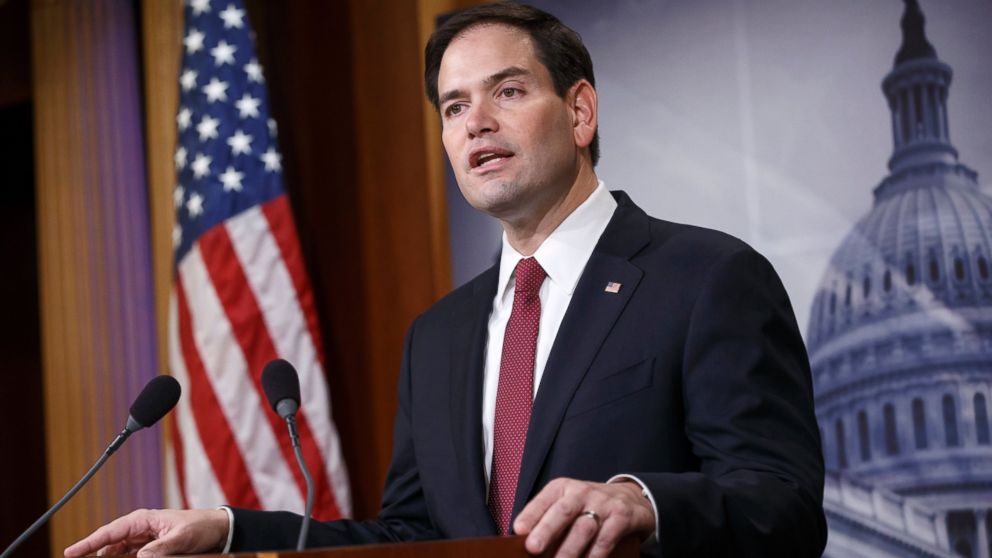Why Washington Is Arguing Over Cuba's Airbnb Proliferation

— -- Both criticism and praise were bipartisan today in a Senate hearing over the Obama administration’s normalizing of relations with Cuba, as a new round of diplomatic discussions between senior officials from both countries is set to begin Thursday.
In front of the Senate Foreign Relations Committee were State Department counselor Thomas Shannon Jr. and Assistant Secretary of State Roberta Jacobson, who has taken the lead role for the U.S. since the historic negotiations kicked off on Dec. 17.
The hearing touched on everything from reported political detentions by the Castro regime since negotiations began, to Airbnb, a website where users can post private rental accommodations, used by many Cubans recently.
GOP 2016 presidential contender Sen. Marco Rubio, who has hardly been shy in his opposition to the negotiations, said he was mainly opposed to the idea that any tourist dollars from Americans who gain the ability to visit would go to the Cuban military.
"In essence, when you travel to Cuba and stay in one of these hotels, not only are you putting money in the hands of the Cuban government, you're trafficking in stolen goods,” Rubio said. “Because that is a property that belonged to a private holder, some of whom are American citizens, who were never compensated for it."
But Jacobson pushed back by saying that more options have opened up in recent months, included Airbnb postings that would involve an exchange of money primarily between Cuban and American citizens.
“We are aware that there will be some financial benefit to the Cuban government by the larger number of Americans going to Cuba,” Jacobson said. “The benefit to the Cuban people of this larger number of Americans going far outweighs the increased economic benefit that may accrue to the Cuban government.”
Rubio, a son of Cuban immigrants, then suggested that Americans choosing to travel to Cuba should be restricted from staying in government-owned hotels, a comment that elicited push-back from colleagues on both sides of the aisle.
“Are we going to start telling people what hotels to stay in in China and Russia?” asked Sen. Barbara Boxer, D-California, who acknowledged Airbnb was a company that originated in her own district in San Francisco. “Come on, we don't do that. We're not an authoritative country.”
Sen. Jeff Flake, R-Arizona, went so far as to pull out his own iPad to show off the surge of Airbnb postings inside Cuba.
“If you just scroll down, they have now more than 2,000 listings in Cuba,” Flake said. “I've often said that if somebody is going to limit my travel, it should be Communists, that's what they do. But not our government.”
Democratic Senator and son of Cuban immigrants Bob Menendez was more pointed in his criticism, raising concerns about politically motivated arrests reported in the country since the December deal.
“Human rights abuses continue unabated. With more than 1,600 cases of arbitrary political arrests this year alone,” said Menendez, D-N.J. “Only five months into the year. So, President Obama may have outstretched his hand, but the Castros still have their fists real tight.”
Jacobson, however, said the effects of the agreement were already causing a healthy shift among Cuban citizens, which she maintained ought to transfer upwards into the government.
“While we decry the detentions of the activists, we know there are Cubans who are benefiting from this new policy in their independent businesses and in their belief that they are going to prosper and have a better life because of engagement with the U.S.,” Jacobson said.
Shannon asked lawmakers to approach the deal in a broader capacity as to how it could potentially effect America’s influence throughout the Western hemisphere.
“We are at a moment of strategic momentum,” Shannon said. “If we can show that through our dialogue we can present a consolidated face to the rest of the world, we will have done something remarkable.”
Jacobson also offered up a brief preview ahead of this week’s talks.
“In terms of what we will talk about tomorrow, it's really getting the rest of the agreement for an embassy that operates similar to the way we operate in some other countries," she said.
The U.S. designation of Cuba as a "state sponsor of terrorism" is set to expire May 29.



